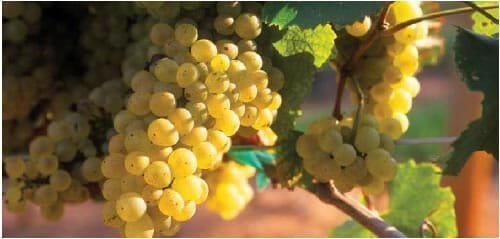Wineries of American South Pour Over
Wineries of American South Pour Over
 Think Florida’s lush coastal plain, and oranges come to mind. Think North Carolina’s or Virginia’s vast rural terrain, and it’s tobacco. Think again. In addition to everything else it has to offer, this region is becoming increasingly well-known as one of the nation’s premier winemaking centers.
Think Florida’s lush coastal plain, and oranges come to mind. Think North Carolina’s or Virginia’s vast rural terrain, and it’s tobacco. Think again. In addition to everything else it has to offer, this region is becoming increasingly well-known as one of the nation’s premier winemaking centers.
In fact, the American South’s longstanding history with grapes and viniculture, or winemaking, dates to some of the region’s first European settlers. Upon arriving on North Carolina’s Roanoke Island, they observed the vines to be so plentiful that “…in all the world the like abundance is not to be found.”
Today, with more than 70 wineries in North Carolina alone, nine distinct wine regions in Virginia and an official Florida wine trail, the southern United States produces thousands of tons of grapes annually. Most are muscadines and bunch-grape varieties that are funneled directly into the production of regional wines.
Many Southern wineries boast extensive winemaking expertise and technology, as well as high-end eating, lodging and banquet facilities for visitors seeking more knowledge about the region’s wine culture.
Muscadines at Duplin
 With close to 270,000 cases of wine produced annually in a 75,000-square-foot state-of -the-art facility, Duplin Winery in Rose Hill, NC, is the largest winery in the South, the oldest winery in North Carolina, and the largest muscadine winery in the world.
With close to 270,000 cases of wine produced annually in a 75,000-square-foot state-of -the-art facility, Duplin Winery in Rose Hill, NC, is the largest winery in the South, the oldest winery in North Carolina, and the largest muscadine winery in the world.
“When people think of winemaking, they usually think of California,” says David Fussell, owner of Duplin Winery. “In truth, North Carolina has a great tradition of winemaking and is currently the 10th-largest producer of both grapes and wine in the U.S.”
Home to a muscadine grape variety called the scuppernong, North Carolina has an ideal grape-growing climate with its year-round temperate climate and rich soil.
“We have two grape stomp events a year,” says Fussell. The sweet-tasting juices produced from these stomps have resulted in several award-winning wines.
The Bistro Restaurant, which serves lunch and dinner, and a retail shop round out the Duplin Winery. Daily tours of the winery are available.
The Venerable Biltmore
No discussion of North Carolina wineries would be complete without mentioning the Biltmore Estate Winery in Asheville, NC.
With more than one million visitors a year, the Biltmore Winery, established in the mid-1970s, is housed in a 90,000-square-foot modern winemaking facility located on the grounds of the historic Biltmore House, the largest private home in America.
Harvesting several hundred tons a year of award-winning red, white, rosé, and sparkling wines, the winery is one of the largest plantings of vinifera, or European grapes, east of the Mississippi River. The winery produces about 140,000 cases of wine each year, of which between 55,000 to 60,000 are sold at the winery.
Guided and self-guided tours of the winery are available and include glimpses of the fermentation room, corking area and cellars.
The Buzz at Banner Elk
Quickly garnering acclaim and numerous awards for its superior wines since its opening in July 2006, Banner Elk Winery in Banner Elk, NC, is situated on a 25-year-old blueberry farm in the North Carolina High Country.
The winery produces several different wines, among them Chardonnay, Seyval Blanc, Banner Elk White, Banner Elk Red and a Cabernet Sauvignon, which won the Double Gold Medal at the 2006 North Carolina State Fair.
One of the winery’s centerpieces is the Blueberry Villa, an eight-bedroom luxury bed and breakfast overlooking the winery that can accommodate both large parties and couples looking for the perfect weekend getaway.
Old World Charm at New Kent
 Centrally located between Colonial Williamsburg and Richmond, Virginia’s New Kent Winery and Vineyards opened its doors in May 2008.
Centrally located between Colonial Williamsburg and Richmond, Virginia’s New Kent Winery and Vineyards opened its doors in May 2008.
Built from materials reclaimed from structures well over a century old, New Kent was modeled to reflect the state’s earlier winemaking days. What has resulted is a 17,000-square-foot winery with state-of-the-art equipment from around the world that has produced some of the state’s finest wine.
New Kent’s vineyards include a variety of vines, among them Chardonnay, Vidal Blanc, Cabernet Franc and Norton, a grape native to Virginia.
By design, the tasting room is New Kent’s centerpiece, where the view includes vineyards, polo fields and lakes. Visitors can sample any of the winery’s six Virginia wines and peruse wine books while seated on an outdoor porch.
Williamsburg Winery
Virginia’s largest winery with an annual production of 60,000 cases, Williamsburg Winery was established in 1985 and is composed of more than 50 acres of vineyards.
Reflecting the area’s colonial beginnings, the winery is constructed in an 18th-century English countryside style. A guided tour of the winery includes the wine production facility, the barrel cellar and a video presentation on grape growing and winemaking.
After the tour, visitors can stop at the winery’s retail shop to purchase various wine accessories and other gourmet products.
Life at Lakeridge
 Located on a 127-acre estate amid gently rolling countryside west of Orlando, Lakeridge Winery & Vineyards is Florida’s largest premium winery.
Located on a 127-acre estate amid gently rolling countryside west of Orlando, Lakeridge Winery & Vineyards is Florida’s largest premium winery.
Established in 1989, the winery specializes in developing table and sparkling wines from hybrid grapes, with an overall production of 50,000 cases.
In addition to producing several award-winning wines, Lakeridge also has a fine reputation for its many festivals, which regularly attract hundreds of visitors. In June, the annual Harvest Festival features grape stomping, arts and crafts and live music. And if it’s the blues and wine that suit, then you’ll definitely want to check out April’s Blues Festival.
Sunshine State’s San Sebastian
Since opening its doors in 1996, San Sebastian Winery in St. Augustine, FL, continues to be one of the Sunshine State’s leading wineries, producing over 80,000 cases annually.
Wines produced at San Sebastian’s 18,000-square-foot facility include table, sparkling and dessert wines. Visitors touring the winery can view the 5,000-gallon stainless steel tanks where wines are fermented and stored prior to bottling.
If atmosphere is key to your wine enjoyment, then San Sebastian’s wine, jazz and blues bar-“The Cellar Upstairs”-will not disappoint, as it regularly features some of the area’s best live musical entertainment.
Receive your complimentary Relocation guide and magazine


